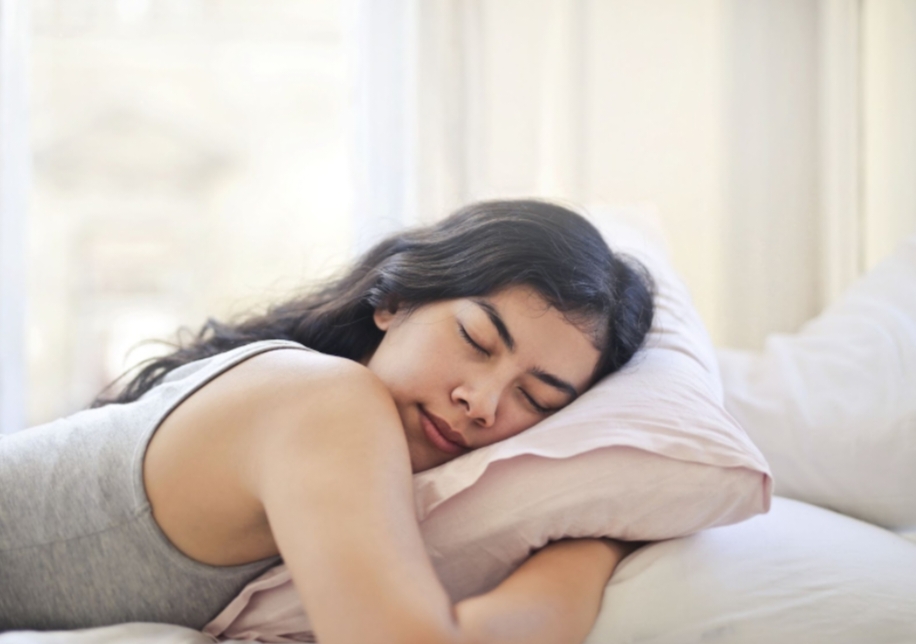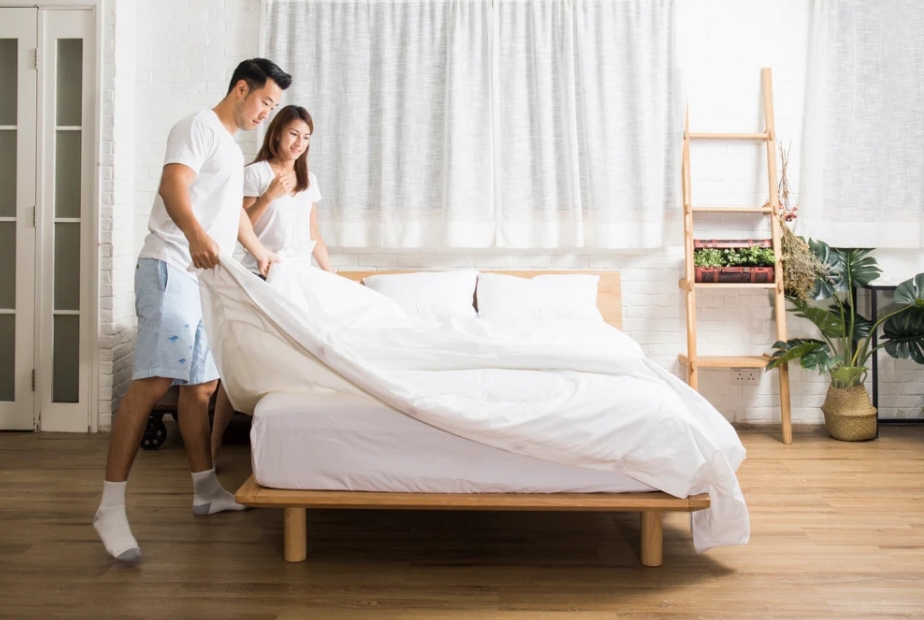Table of Contents
The human immune system functions normally when we sleep, but serious sleep disorders can interfere with the immune system’s normal functioning. This is because sleep, a period of bodily rest, promotes the robustness of the immune system, contributing to both innate and adaptive immunity. Additionally, nightly sleep can trigger the production of cytokines that are associated with inflammation. These processes are governed by the body’s circadian rhythm, a 24-hour internal clock.
Mechanisms
- Sleep plays an important role in maintaining health and preventing disease. Studies have found that sleep deprivation impairs several pathways of the immune system, including those that regulate inflammation. This could lead to increased susceptibility to chronic inflammatory diseases. This has led to an increased focus on the immunological consequences of sleep deprivation. Recent research has investigated how sleep affects the immune response, including the role of innate and adaptive immunity.
- A number of studies have shown that consistent sleep enhances the immune system. In fact, sleep also improves the effects of vaccines. These vaccines introduce weakened antigens into the body and stimulate an immune response. Chronic sleep deprivation has been linked to chronic illnesses, such as overdose on melatonin, alcoholism and stress.
- These findings also support the view that sleep deprivation contributes to the development of NDDs. Animal experiments have indicated that sleep deprivation affects the immune system, but human research has not conclusively established the causal relationship between sleep deprivation and NDDs.
Mechanisms Of Sleep
- Sleep plays a pivotal role in maintaining homeostasis in the body. Without sleep, the body’s systems can become unstable, leading to diseases and death. Sleep is a complex system that requires detailed study to determine the interactions between different variables. Sleep also contributes to the health of the immune system. For example, it boosts the effectiveness of T cells, specialized immune cells that contribute to the body’s immune response when an invading foreign body enters the body.
- Sleep plays a crucial role in determining how the immune response responds to an infection. During sleep, the immune system strengthens innate and adaptive immune functions. This function of sleep is also critical in fighting off parasites, which cause disease in the body. A recent study by Preston and colleagues explored the hypothesis that sleep could protect against parasitic infections. In their study, they found that the duration of sleep was negatively related to the prevalence of parasite infection.
- Parasites can affect the sleep cycle and disrupt sleep. In addition, parasites can alter sleep by increasing slow waves or interrupting rapid eye movement sleep. Parasites can also alter sleep patterns and impair the immune response. Moreover, parasitic infections affect the respiratory and endocrine systems. Also, using the right mattress is also important as well as the size. You can use the twin vs twin xl for kids and the Full Mattress can be used for adults.
Mechanisms Of Interaction Between Sleep And Immunity
- In the process of an immune response, sleep patterns are altered, modulating various physiological functions. Sleep has long been known to regulate a number of physiological events, but the role of sleep in the immune response remains largely unknown. Sleep is an essential component of the body’s homeostasis or state of equilibrium, and deprivation can result in many physiological disorders, including the risk of death. It is therefore important to identify mechanisms that maintain balance in complex systems.
- Sleep and immunity interact through many mechanisms, including circadian changes in immune parameters. For example, the circulating level of naive T cells and levels of proinflammatory cytokines peak at night, whereas levels are lowest during the daytime. Sleep also modulates the activity of other hormones, including growth hormone and cortisol.
How to Sleep Properly For a Better Immune System
-
Exercise improves sleep for a better immune system
- The placebo effect is a powerful mechanism that can make people believe that exercise makes them healthier, so a moderate amount of exercise can have a positive effect on immune function. However, the benefits of exercise may depend on the type of activity and intensity. While physical activity increases your heart rate and the amount of oxygen in your blood, too much exercise can reduce your immunity and make you more susceptible to infections.
- While exercise is necessary for cardiovascular health, it is also important to improve muscle mass and endurance. Sleep helps the body recover from exercise. When you have a restful night’s sleep, your immune system will be more active. However, this doesn’t mean that you can’t exercise anymore – a daily workout, no matter how strenuous, can help your immune system.
2. Getting Enough Sleep Boosts Immunity
- Sleep is important to our health and well-being, and it can help our immune system fight off infection. People who don’t get enough sleep have lower antibody response to the hepatitis B vaccine. In short, the relationship between sleep and immunity is very strong. So, prioritising sleep during illness is important for your overall well-being.
- A recent study conducted in Germany found a direct link between adequate sleep and immune function. Specifically, a good night’s sleep increases the activation of T cells, the specialised immune cells in the body that help the body respond to foreign body infections. The researchers concluded that a good night’s sleep will help the immune system fight disease and keep it healthy. Also, excessive sleep isn’t good for the body as well. There are many reasons why oversleeping must be controlled.
3. Stress affects immunity
- Sleeping properly can help your immune system, so making sure you’re getting enough sleep can help your overall health. Research has shown that stress can negatively impact your immune system, so it’s important to know what types of stress affect your body and how you can best cope with them. If you’re suffering from a stressful situation, try reaching out to loved ones and friends to help you deal with your emotions.
- It’s important to get enough sleep since chronic sleep deprivation lowers the level of cytokines your immune system produces. As a result, a lack of sleep makes you more susceptible to infections. If you’re feeling sick, you’ll probably experience a disruption in your sleep, which will increase the urge to stay up. Getting enough sleep is essential for keeping your immune system healthy, and sleeping well will help you recover more quickly.
- Besides being beneficial for your immune system, stress also affects your sleep. Getting enough sleep is crucial for your body’s immune response, and a poorly functioning immune system can disrupt your sleep patterns. So, if you’re not getting enough sleep, it’s time to improve your sleep habits. It’s a proven fact that sleep and the immune system are intimately connected. So, if you’re stressed and have trouble getting a good night’s sleep, try improving your sleeping schedule. Also, adopting healthy coping mechanisms can control stress.
4. Getting A Good Night’s Sleep Helps Fight Off Pathogens
- Getting a good night’s sleep is crucial for the body’s defence against infection and other foreign substances. Sleep improves the body’s immune system by increasing the production of the hormones needed to combat harmful organisms. Sleep increases the production of cytokines, which help regulate the immune response and help the body defeat infections and inflammation. These hormones also boost the memory of the immune system, enabling it to respond quickly to microbes.
- Studies in animals have shown that getting a good night’s sleep boosts the immune system. People who get less sleep are more susceptible to developing respiratory viruses. In addition, people who get little or no sleep have lower antibody responses to vaccinations. Therefore, sleep is vital for developing a strong antibody response against pathogens. You must also use proper bedsheet sizes for yourself. You can check the list of standard bedsheet sizes online and then purchase the suitable size for yourself.
- In addition to boosting the immune system, sleep also helps the body fight low-grade inflammation. Short, interrupted sleep has been linked to higher levels of inflammatory markers, which weaken the ability of immune cells to combat pathogens. This is the main reason why sleep is so important.
Conclusion
Finally, while concluding it can be simply said that sleep boosts immunity thus any process that aids in the sleeping process must be encouraged while anything that deviates from the sleep process must be eliminated



